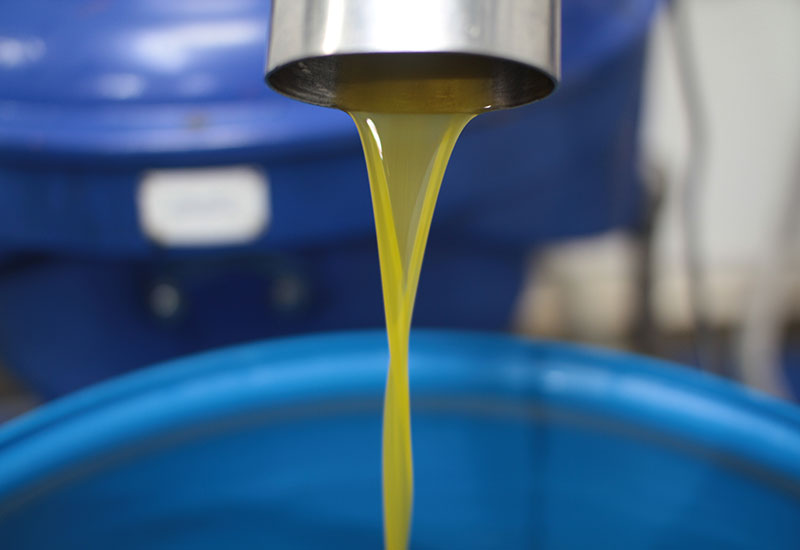Swirl, sniff, slurp, swallow. While it may sound like a nursery rhyme, these are the key steps for determining whether or not an oil is "extra virgin,” the highest grade of olive oil.

While it may sound like a nursery rhyme, these are the key steps for determining whether or not an oil is “extra virgin,” the highest grade of olive oil. International standards dictate that an oil must meet both chemistry and sensory parameters to be considered extra virgin. No chemicals or extreme heat may be used during the extraction process and no other oils of any kind may be added to the product.
Laboratory tests provide an indication as to the quality of an oil, but are not conclusive. The true determinant of whether an oil is extra virgin is a sensory assessment. Sensory analysis is used to ensure that an olive oil is free of defects. Defects of flavor or odor can result as a consequence of problems in the handling and production of olive oil and cannot always be detected by laboratory tests.
During a sensory assessment, a panel of trained olive oil tasters work in a controlled environment. Barriers are erected to allow for isolation of the senses of smell and taste and no food or scented beauty products are allowed in the vicinity. The oil is tasted in blue-tinted glasses to obscure the color as color has no correlation to quality. Panelists follow a strict protocol of the 4 S’s (swirl, smell, slurp, swallow) which allows them to fully evaluate each oil sample. Scores are recorded and an outcome is determined based upon statistical consensus. Once an oil has met the chemistry requirements and been deemed free of defects, it then qualifies as extra virgin.
Watch the video on Sensory Evaluation of Olive Oil to learn more.
Sensory Evaluation of Extra Virgin Olive Oil from California Olive Oil Council on Vimeo.
A Quarter-Century of Agricultural Leadership
Founded in 1992, the California Olive Oil Council (COOC) is a non-profit trade association with the mission of encouraging the consumption of certified California extra virgin olive oil through education, outreach and communications.
The COOC is committed to upholding the highest standards within the olive oil industry through its Seal Certification Program. The COOC Seal certifies that an oil is produced only from olives grown in California and has met the criteria to be considered extra virgin. Learn more at COOC.com